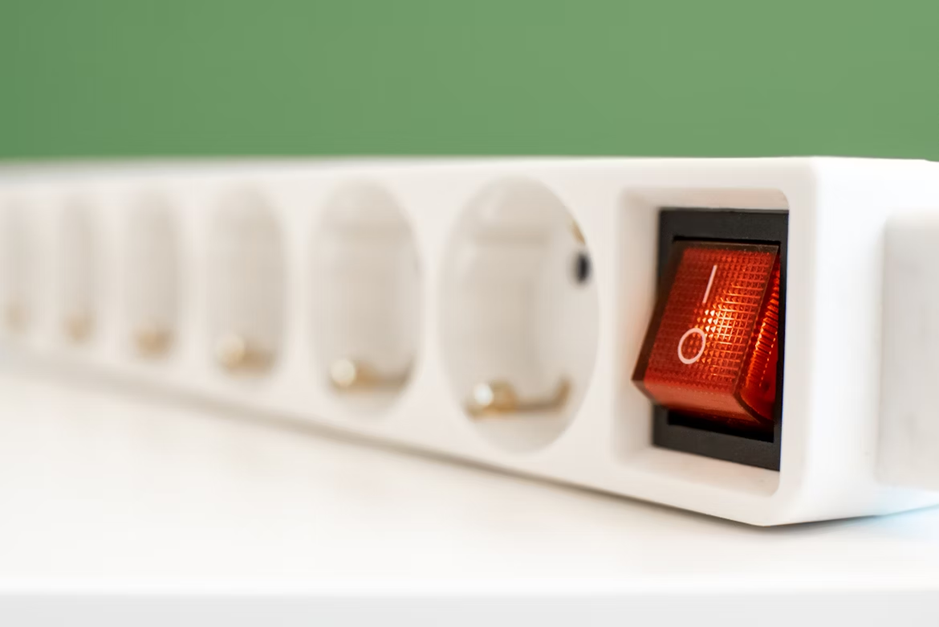The Ultimate Guide To Choosing The Right Extension Cord For Your Needs

Is it difficult for you to locate an extension cord that is the perfect fit for your devices? Have you ever thought about what factors precede your decision to buy something? Look no further! In this comprehensive article, we will uncover all the mysteries behind the selection of Right Extension Cord for proper functioning.
Have you ever thought of the cord’s length? What is the relationship between the wire size and ampacity?
These are the things that will help you locate the right extension cord. Besides, are you familiar with the outdoor and indoor cords? The knowledge of such differences is highly critical for safety as well as efficiency.
In addition, which particular factor should be given the highest priority while selecting an extension cord? Consequently, surge protection, multiple outlets, and flexible wires are something you should seriously take into account in your purchase.
By the time you finish this article, you will be given solutions and will have the confidence to take the right extension cord.
Understanding Extension Cord Basics
Before starting, it is essential to remember some basic concepts of extension cords.
1. Length

The length of an extension cord defines the distance within which you can place your device from the electricity outlet. The longer the cord, the more flexible it becomes. However, it can start losing voltage, most notably with high-power gadgets.
The length of the cable must be sufficient for your needs but not too long. This will help to prevent accidents associated with trailing cords. While choosing the extension cord evaluate your distance requirements to find right flexibility-voltage drop balance parameters.
With a robust device, the heavy duty extension cord would be a good option as it guarantees safety and reliability.
2. Gauge
A cord gauge determines the thickness of the extension cord, with lower numbers standing for thicker wires. Thick wires can carry higher currents and have a higher capacity for powering large-sized appliances and devices.
You may want to ensure that you choose the gauge that will complement the wattage and amperage needs of your device.
3. Indoor vs. Outdoor Use
The cords of extension cords designed for outdoor use are weatherproof and have a casing made from hardy material that can withstand exposure to rain, snowfall, and sunshine. Indoor extension cords are designed to operate indoors and should not be used outdoors to prevent dangers.
Read: Shift Gears, Save Cash: Essential Hacks for Lowering Your Auto Insurance Premiums
Selecting the Right Extension Cord
1. Get to Know Your Power Requirements

Image Source
Determine the precise power specifications of the devices and equipment that you intend to add to the extension cord before the installation to avoid problems and efficient operation.
Check if the appliance is compatible with your power cord by finding out how it uses watt and amp.
2. Calculate Voltage Drop
A steeper voltage drop would be observed for longer extension cords, resulting in the delivery of fewer watts and performance glitches.
Take an online voltage drop calculator to forecast what voltage drop you will obtain for a given distance between the cable and the power requirement of your devices.
Choose a cord whose gauge is equivalent to the amp rating to prevent power decrease and achieve a better performance level.
4. Consider Special Features
Your needs will determine whether or not you need extension cables with unique characteristics like:
- The surge protection component of the extension cord keeps electronic gadgets safe.
- Locking mechanisms are used to ensure secure links and prevent accidental separations.
- Easy storage, flexible cables that can pass through any spot and won’t cause any problems.
5. Find the Right Gauge

Look up the wattage and amperage ratings of the devices that will be connected to your extension cable to determine the gauge of the extension cable.
However, in general, high gauge cables, the ones with lower gauge numbers, are much better for electricity transmission equipment that requires or needs a lot of power.
Conversely, devices using less power and voltage need lighter cables with larger gauge numbers.
6. Ensure Safety Compliance
Safety should be the most significant factor to be considered when choosing extension cords. For example, do not forget to check their safety standards and certificates, such as UL (Underwriters Laboratories) and CSA (Canadian Standards Association).
Though often not a requirement, these certifications indicate that the product has passed through a comprehensive testing process and was built with certain basic safety standards. One of the primary implications is their accuracy, quality assurance and warranty.
It is advisable that extension cords be scrutinized frequently for tearing and/or erosion. An immediate replacement is requisite if any damaged part in the extension cord is found to prevent accidents.
Conclusion
In order to power your appliances and devices safely, effectively, and conveniently, it is important that you use the right extension cord. You can select an extension cable that fulfills your requirements and works dependably by taking into account factors, for instance, length, gauge, power requirements, and unique characteristics.
Never forget to put safety first by only using cables that meet safety requirements and staying away from frayed or broken ones. You can power your appliances and gadgets whenever you need them, indoors or out, with confidence if you follow this comprehensive guide on selecting the best extension cable for your requirements.




